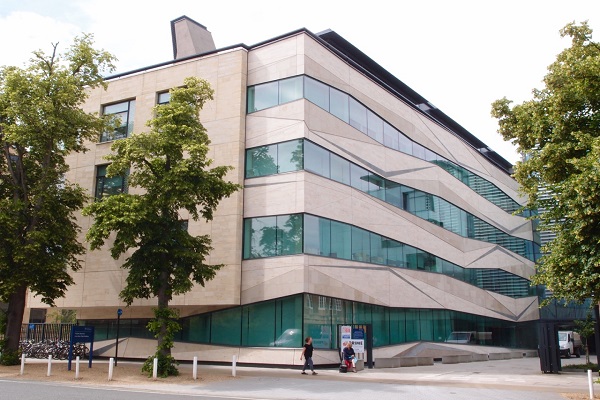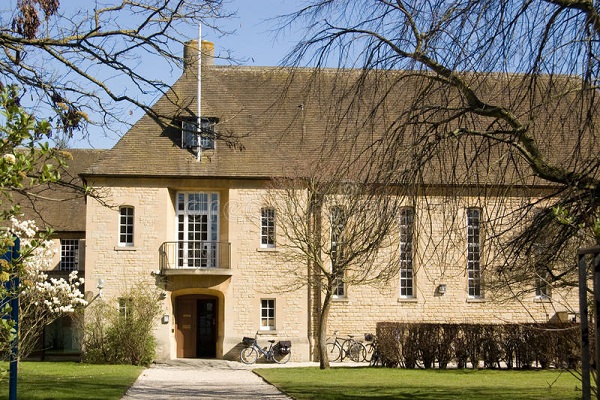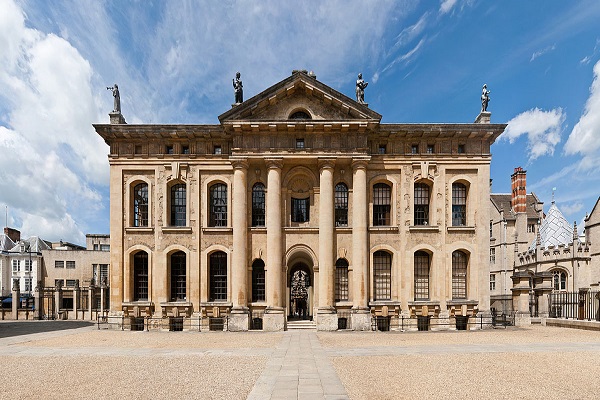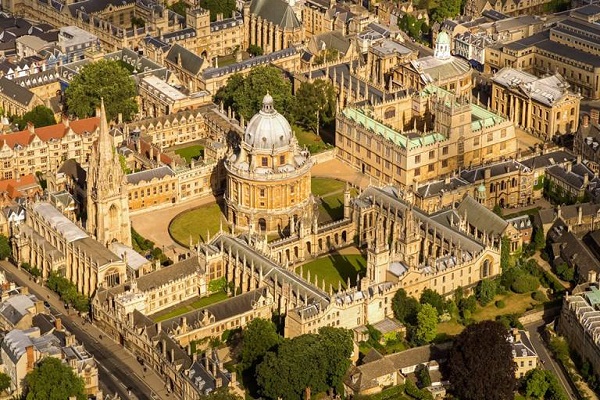University Rankings
- QS World University Rankings 4
- Times Higher Education World University Rankings 1
- Academic Ranking of World Universities 7
- QS Sustainability Ranking 5




1. Overview and History
While the exact founding date remains unclear, teaching existed at Oxford in some form in 1096 and developed rapidly from 1167 when Henry II banned English students from attending the University of Paris. The university’s development stemmed from the growing importance of Oxford as a centre of learning. Colleges began to be founded, initially as halls of residence for students and later evolving into self-governing academic communities that form the core of the university’s structure today. Over centuries, Oxford has played a pivotal role in shaping academic disciplines, intellectual movements, and global affairs.
2. Campus and Facilities
Oxford’s campus is spread across the city centre, with a blend of historic buildings and modern facilities. Its libraries hold one of the largest collections of books and manuscripts in the UK. The university offers state-of-the-art laboratories, museums, performance spaces, and sporting facilities, including the renowned Bodleian Library, Ashmolean Museum, and University Parks. Numerous colleges also have their own specialized libraries, dining halls, chapels, and accommodation.
3. Academic Programs
Oxford offers a comprehensive range of undergraduate and postgraduate programs across humanities, social sciences, sciences, medicine, engineering, and business. It is divided into four academic divisions: Humanities, Social Sciences, Mathematical, Physical and Life Sciences, and Medical Sciences. Within these divisions, there are numerous faculties, departments, and research centres that offer specialized programs.
4. Research and Innovation
Oxford is a global leader in research and innovation, consistently ranked among the top universities for research output. Its researchers contribute significantly to a wide range of fields, from medical breakthroughs and scientific discoveries to advancements in the humanities and social sciences. The university has a strong track record of translating research into real-world impact through collaborations with industry and the establishment of spin-out companies.
5. Internationalization
Oxford is a highly international university, with a diverse student body representing over 160 countries. It offers a range of international programs and partnerships, fostering global collaborations in research and teaching. The university actively encourages student and faculty mobility, creating a vibrant and interconnected global academic community.
6. Student Life
Oxford offers a rich and diverse student life, with over 400 student clubs and societies catering to a wide range of interests. The collegiate system provides a strong sense of community, with each college offering its own social events, accommodation, and support network. Students can participate in a variety of extracurricular activities, from sports and music to drama and volunteering.
7. Admissions and Tuition
Admission to Oxford is highly competitive, based on academic merit, aptitude tests, and interviews. Tuition fees vary depending on the program and student’s residency status. International students generally pay higher fees. Scholarships and financial aid options are available.
8. Notable Alumni and Achievements
The University of Oxford, located in Oxford, England, is one of the oldest and most prestigious universities in the world, with a history dating back to the 12th century. It is a collegiate research university, consisting of over 30 autonomous colleges and halls. Oxford is not affiliated with any external body but is recognized and chartered by the British Crown. It operates under the University of Oxford Act 2005 and other statutes established by the UK government.
Oxford is a member of several elite international academic groups, including:
Russell Group (UK research-intensive universities)
Europaeum (a network of leading European universities)
Coimbra Group (association of long-established European multidisciplinary universities)
It has produced countless notable alumni, including 28 British Prime Ministers, over 70 Nobel Prize winners, and influential figures like Stephen Hawking, J.R.R. Tolkien, and Malala Yousafzai.
College Affiliation
News & Updates
 Timeless Learning: Unveiling Oxford’s Unique Tutorial System and Academic Excellence
Timeless Learning: Unveiling Oxford’s Unique Tutorial System and Academic Excellenceby Piyush Chauhan
December 20, 2025
 Innovating Tomorrow: Discovering Cutting-Edge Research and Urban Life at UCL
Innovating Tomorrow: Discovering Cutting-Edge Research and Urban Life at UCLby Piyush Chauhan
December 20, 2025
 Beyond Textbooks: Experiencing Vibrant Campus Life at an American University
Beyond Textbooks: Experiencing Vibrant Campus Life at an American Universityby Piyush Chauhan
December 20, 2025
 Navigating Complexity: Oxford’s Insights on Global Policy and Ethical AI Challenges
Navigating Complexity: Oxford’s Insights on Global Policy and Ethical AI Challengesby Piyush Chauhan
December 19, 2025
 Engineering Tomorrow: MIT’s Breakthroughs in AI and Robotics Transforming Industries
Engineering Tomorrow: MIT’s Breakthroughs in AI and Robotics Transforming Industriesby Piyush Chauhan
December 19, 2025
Courses & Fees
| Course Name | Duration | Fees (in ₹) |
|---|---|---|
| Bachelor of Arts in Philosophy, Politics, and Economics | 3 years | 30,00,000 |
| Master of Science in Computer Science | 1 year | 40,00,000 |
| Doctor of Philosophy in Engineering Science | 4 years | 1,80,00,000 |
Frequently Asked Questions
Oxford's collegiate system means students are members of both the university and a specific college. Colleges provide accommodation, dining, libraries, and social activities, creating a smaller community within the larger university.
Applications are submitted through the UCAS application portal. You'll need to choose a course, provide academic transcripts, write a personal statement, and provide references. Some courses may require entrance exams.
International students need to meet specific English language requirements and demonstrate equivalent academic qualifications to UK students. Requirements vary depending on the course.
Yes, Oxford offers a range of scholarships and financial aid options for international students, though they are highly competitive.
Oxford maintains a low student-to-faculty ratio, ensuring personalized attention and access to leading academics.
Video Highlights

The University of Oxford: Official Film
